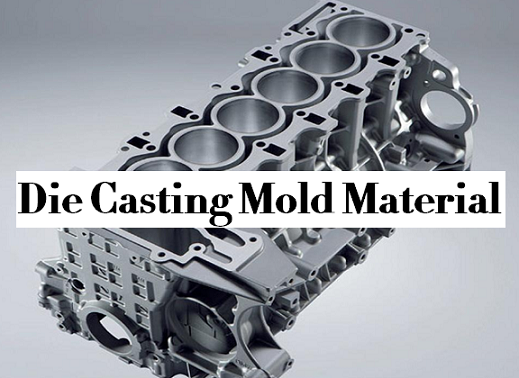Not known Facts About Alcast Company
Not known Facts About Alcast Company
Blog Article
Some Known Factual Statements About Alcast Company
Table of ContentsGetting My Alcast Company To WorkThe Only Guide for Alcast CompanyAbout Alcast CompanyAbout Alcast CompanyNot known Factual Statements About Alcast Company Facts About Alcast Company Revealed
The subtle difference depends on the chemical material. Chemical Contrast of Cast Aluminum Alloys Silicon promotes castability by minimizing the alloy's melting temperature and boosting fluidness during casting. It plays an important function in enabling elaborate mold and mildews to be filled properly. Additionally, silicon adds to the alloy's stamina and wear resistance, making it useful in applications where longevity is critical, such as automobile components and engine components.It additionally improves the machinability of the alloy, making it simpler to process right into completed products. In this way, iron contributes to the general workability of light weight aluminum alloys.
Manganese adds to the toughness of light weight aluminum alloys and enhances workability (Casting Foundry). It is frequently utilized in functioned aluminum items like sheets, extrusions, and profiles. The presence of manganese help in the alloy's formability and resistance to breaking throughout construction processes. Magnesium is a lightweight component that supplies stamina and effect resistance to light weight aluminum alloys.
An Unbiased View of Alcast Company
It enables the manufacturing of lightweight parts with outstanding mechanical properties. Zinc enhances the castability of light weight aluminum alloys and helps manage the solidification procedure throughout casting. It enhances the alloy's toughness and hardness. It is commonly discovered in applications where elaborate forms and great information are essential, such as decorative castings and particular automotive parts.

The key thermal conductivity, tensile strength, return stamina, and elongation differ. Among the above alloys, A356 has the highest thermal conductivity, and A380 and ADC12 have the cheapest.
The smart Trick of Alcast Company That Nobody is Talking About

In accuracy casting, 6063 is fit for applications where intricate geometries and high-quality surface area coatings are critical. Instances consist of telecommunication enclosures, where the alloy's remarkable formability permits sleek and aesthetically pleasing layouts while maintaining architectural honesty. Likewise, in the Lighting Solutions market, precision-cast 6063 elements develop classy and efficient lighting components that need complex forms and great thermal efficiency.
It leads to a better surface area coating and far better corrosion resistance in A360. Additionally, the A360 shows superior prolongation, making it excellent for complicated and thin-walled elements. In precision spreading applications, A360 is appropriate for sectors such as Customer Electronics, Telecommunication, and Power Devices. Its improved fluidity enables intricate, high-precision parts like smart device coverings and interaction tool housings.
The Ultimate Guide To Alcast Company
Its distinct residential properties make A360 a beneficial choice for accuracy casting in these sectors, boosting item sturdiness and quality. Light weight aluminum alloy 380, or A380, is a commonly used casting alloy with several unique features. It supplies outstanding castability, making it an excellent choice for precision spreading. A380 exhibits excellent fluidity when molten, ensuring complex and in-depth molds are properly duplicated.
In accuracy casting, aluminum 413 radiates in the best site Customer Electronic Devices and Power Devices industries. This alloy's exceptional rust resistance makes it an excellent choice for exterior applications, guaranteeing resilient, resilient items in the discussed sectors.
Alcast Company - An Overview
As soon as you have made a decision that the aluminum die casting process appropriates for your project, a vital next action is picking the most ideal alloy. The light weight aluminum alloy you choose will significantly influence both the spreading procedure and the properties of the final product. Because of this, you need to make your decision carefully and take an enlightened strategy.
Identifying one of the most ideal aluminum alloy for your application will imply evaluating a broad variety of qualities. These comparative alloy characteristics follow the North American Pass Away Casting Organization's guidelines, and we've split them into 2 classifications. The first classification addresses alloy attributes that affect the production process. The 2nd covers characteristics affecting the properties of the final item.
Alcast Company Can Be Fun For Anyone
The alloy you pick for die spreading directly impacts numerous aspects of the casting procedure, like exactly how simple the alloy is to deal with and if it is vulnerable to casting problems. Hot splitting, additionally referred to as solidification splitting, is a common die spreading problem for light weight aluminum alloys that can cause internal or surface-level rips or fractures.
Certain light weight aluminum alloys are a lot more susceptible to warm splitting than others, and your selection needs to consider this. It can harm both the cast and the die, so you must look for alloys with high anti-soldering buildings.
Deterioration resistance, which is currently a remarkable quality of light weight aluminum, can differ considerably from alloy to alloy and is a crucial particular to think about relying on the environmental conditions your item will be subjected to (Foundry). Wear resistance is one more residential property frequently sought in light weight aluminum products and can separate some alloys
Report this page